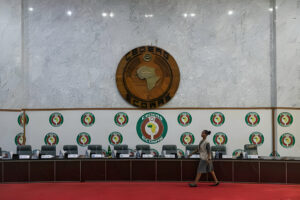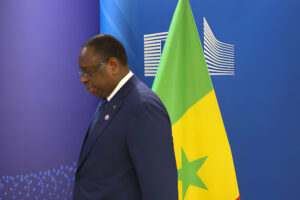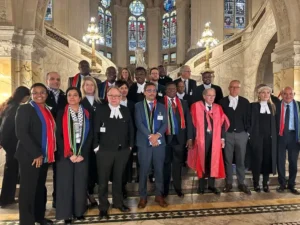A decade after the passing of Nelson Mandela, the towering symbol of South Africa’s struggle against apartheid, the nation finds itself at a crossroads, debating whether it’s time to transcend the enduring legacy of the man often affectionately known as “Madiba.”
In the heart of Pretoria, a nine-meter statue of Mandela oversees the Union Buildings, while over 50 other tributes, ranging from statues to murals, dot the global landscape, commemorating his indelible mark on history. Yet, amidst the continued global reverence for Mandela, a growing sentiment within South Africa is challenging what some label as “Mandela-mania.”
The Mandela Foundation’s recent exhibition, aptly titled “Mandela is Dead,” aims to navigate the complex emotions surrounding the legacy of this political giant. Verne Harris, the late president’s archivist and acting president of the foundation, notes the deep nostalgia and clinging to Mandela’s symbolic persona may have turned into a potentially “destructive energy,” prompting the need to explore new role models.
This introspective initiative encourages public discourse on Mandela’s heritage, prompting reactions that underscore the divisions over his legacy. Critics argue that Mandela’s legacy has not done enough to dismantle the long-lasting effects of apartheid, while others see his dreams unfulfilled by his comrades.
Morongwa Phukubye, spokesperson for the Mandela Foundation, emphasizes the importance of fostering open debate on Mandela’s legacy, acknowledging that it is far from the image of a saint.
One university comment asserts, “His legacy has done nothing but keep the poor poor and the rich rich, freedom is not free.” Another suggests, “If everybody doesn’t strive to bring the dream of a truly free and progressive South Africa to life, then that dream dies with Mandela.”
Verne Harris recounts encounters with varying narratives in South African townships and schools, ranging from accusations of Mandela being a “sellout” to acknowledging him as a “great leader” with disappointment in his successors.
Reflecting on the anniversary, Harris admits feeling “deeply ambivalent,” torn between a sense of relief for Mandela and enduring inspiration. He emphasizes the profound lesson learned from Mandela: “hope is not enough,” and that a deep belief in the ongoing struggle, even in the face of an uncertain future, is crucial.
As South Africa grapples with its past and contemplates its future, the debate over Mandela’s legacy continues, raising poignant questions about the role of iconic figures in shaping a nation’s identity and the need for evolving narratives in the pursuit of a more just society.














